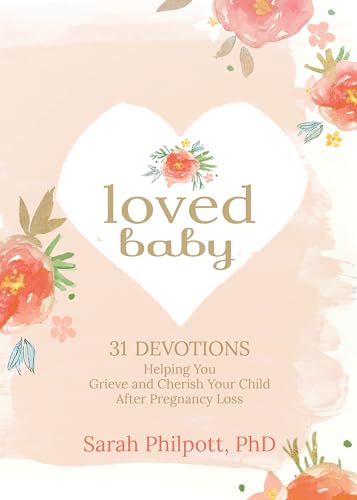Experiencing pregnancy loss can leave you feeling overwhelmed, isolated, and unsure about what’s next. Connecting with support groups or a therapist offers a safe space to process complex emotions like sadness, anger, and guilt. Remember, healing isn’t linear, and seeking help shows strength. Engaging with these resources helps you find peace, rebuild your sense of self, and move toward hope. If you keep exploring, you’ll discover ways to support your journey through grief and recovery.
Key Takeaways
- Connecting with others through support groups provides comfort and reduces feelings of isolation after pregnancy loss.
- Therapy offers a safe space to process complex emotions like grief, guilt, and anger.
- Seeking professional help signals strength and aids in rebuilding emotional resilience.
- Healing involves acknowledging grief while gradually restoring a sense of self and hope for the future.
- Support resources are vital for managing emotions and facilitating recovery after miscarriage or stillbirth.

Have you ever wondered how pregnancy loss impacts mental health? It’s a profound experience that can shake your sense of stability and leave you feeling overwhelmed, isolated, and unsure of how to move forward. Many women and partners find that connecting with others who have faced similar losses can be incredibly comforting. Support groups offer a safe space where you can share your feelings without judgment, learn from others’ experiences, and realize you’re not alone in your grief. These groups often include both in-person and online options, making it easier to find a community that fits your comfort level and schedule. Participating in a support group can validate your emotions and provide a sense of solidarity that’s hard to find elsewhere. It’s important to remember that healing doesn’t mean forgetting; it’s about learning how to carry your grief while also reclaiming your sense of self and hope for the future.
Alongside support groups, therapy options can play an essential role in steering through the complex emotions that follow pregnancy loss. Speaking with a mental health professional allows you to explore your feelings in a confidential, supportive environment. Therapists trained in grief and loss can help you process your sadness, anger, or guilt, and develop healthy coping strategies. Cognitive-behavioral therapy (CBT), for example, can help you challenge negative thoughts and foster resilience. If you’re struggling with anxiety or depression, therapy can offer tools to manage these symptoms and gradually rebuild your emotional well-being. Many people find that engaging in therapy helps them regain a sense of control and hope, even during the darkest moments of grief. Recognizing the importance of mental health support is a crucial step toward recovery.
Choosing to seek support—whether through groups or therapy—is a positive step toward healing. It shows that you recognize the importance of tending to your mental health amidst your pain. Remember, healing isn’t a linear process, and it’s okay to ask for help along the way. Taking action by reaching out to support groups or scheduling therapy sessions demonstrates strength and self-awareness. You don’t have to face this journey alone; support is available to guide you through the complex emotions that come with pregnancy loss. Over time, these resources can help you find peace, acceptance, and hope for brighter days ahead.

Loved Baby: 31 Devotions Helping You Grieve and Cherish Your Child after Pregnancy Loss (Hardcover) – A Devotional Book on How to Cope, Mourn and Heal after Losing a Baby
As an affiliate, we earn on qualifying purchases.
As an affiliate, we earn on qualifying purchases.
Frequently Asked Questions
How Can Partners Support Each Other Emotionally After Loss?
You can support each other emotionally after loss by maintaining open couple communication, sharing your feelings honestly, and listening without judgment. Prioritize emotional intimacy, creating a safe space where both of you feel understood and supported. Be patient with each other’s grieving processes, and consider seeking counseling together if needed. Your shared vulnerability will strengthen your bond, helping you navigate grief as a team.
Are There Long-Term Mental Health Risks Following Pregnancy Loss?
Think of your mental health as a garden; after loss, weeds may sprout that threaten long-term well-being. Yes, pregnancy loss can lead to long-term effects, increasing risks of depression, anxiety, or PTSD if left unaddressed. But with support, healing is possible. You can nurture your mental health, remove those weeds, and cultivate resilience, ensuring the garden flourishes even after hardship.
What Coping Strategies Are Most Effective for Grief Recovery?
You can recover from grief by practicing mindfulness, which helps you stay present and process emotions healthily. Joining support groups allows you to share experiences and find comfort from others who understand your pain. Combining these strategies offers emotional relief, reduces feelings of isolation, and promotes healing. Remember, engaging in self-care, seeking professional counseling, and giving yourself time are also essential steps toward grief recovery.
Can Pregnancy Loss Increase the Risk of Future Mental Health Issues?
Pregnancy loss can increase your risk factors for future mental health issues, such as depression or anxiety. You might find that the emotional impact of loss affects your resilience and coping abilities later on. It’s important to recognize these potential risks and seek support early. Addressing grief and processing your emotions can help mitigate the impact on your future mental health, promoting healing and resilience.
How Do Cultural Beliefs Influence Grief and Healing Processes?
Cultural beliefs act as the compass guiding your grief and healing, shaping rituals that turn mourning into a sacred journey. You might find comfort in rituals that honor your loss, but cultural stigma can also create barriers, silencing your pain or making you feel isolated. Understanding these influences helps you navigate your grief more deeply, transforming societal expectations into pathways for healing and connection.

The Handbook of Grief Therapies
As an affiliate, we earn on qualifying purchases.
As an affiliate, we earn on qualifying purchases.
Conclusion
Remember, healing after pregnancy loss takes time, and your feelings are valid. You’re not alone in this journey, and seeking support can make a difference. Every step forward, no matter how small, is progress. Isn’t it worth honoring your emotions and giving yourself compassion? Though the path may be difficult, hope and healing are possible. Trust that with time and care, you can find peace and rebuild strength—because your well-being matters most.

It's OK That You're Not OK: Meeting Grief and Loss in a Culture That Doesn't Understand
As an affiliate, we earn on qualifying purchases.
As an affiliate, we earn on qualifying purchases.

The Comprehensive Clinician's Guide to Cognitive Behavioral Therapy
As an affiliate, we earn on qualifying purchases.
As an affiliate, we earn on qualifying purchases.









